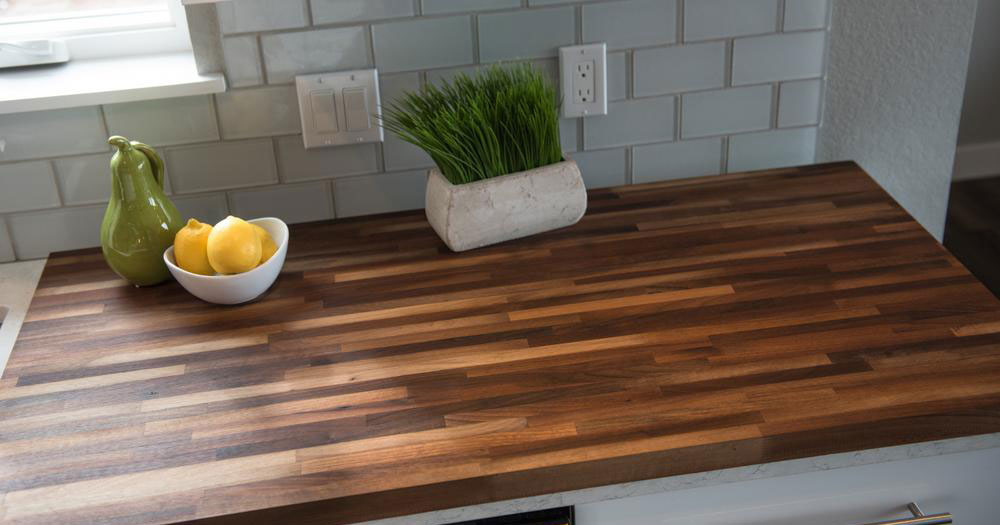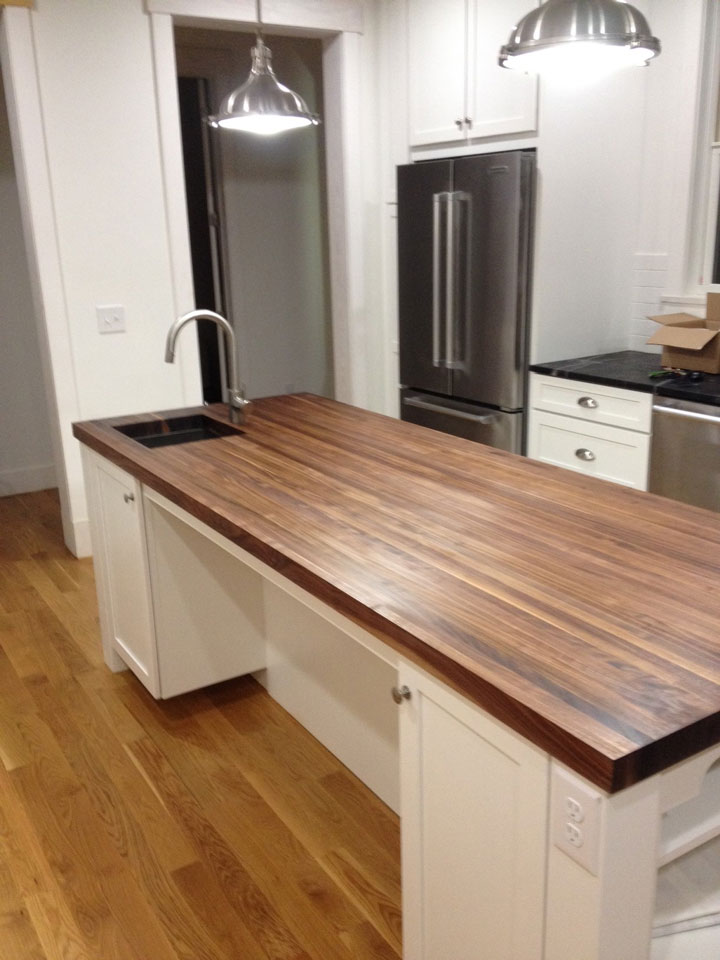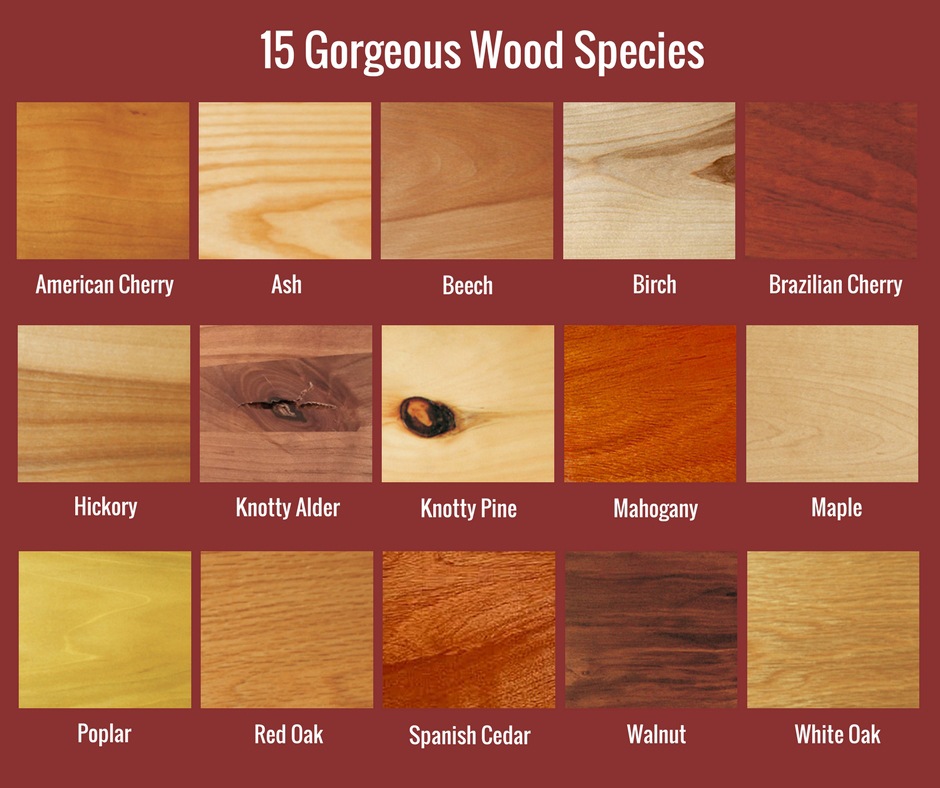Butcher block countertops are a popular choice for kitchens due to their durability, versatility, and timeless aesthetic. There are several types of butcher block countertops available, each with its unique characteristics and advantages:
Maple Butcher Block: Maple is one of the most common types of wood used for butcher block countertops. It is known for its hardness, durability, and light color, which provides a bright and clean appearance in the kitchen. Maple butcher block countertops are resistant to scratches and dents, making them ideal for high-traffic areas.
Oak Butcher Block: Oak is another popular choice for butcher block countertops, prized for its strength, durability, and distinctive grain patterns. Oak butcher block countertops offer a warm and inviting look in the kitchen and can be stained to achieve a variety of shades from light to dark.
Cherry Butcher Block: Cherry wood is prized for its rich color and beautiful grain patterns, making it a luxurious choice for butcher block countertops. Cherry butcher block countertops develop a deep, reddish-brown hue over time as they age, adding character and warmth to the kitchen.
Walnut Butcher Block: Walnut is a premium hardwood known for its rich, dark color and striking grain patterns. Walnut butcher block countertops make a bold statement in the kitchen and provide a luxurious and sophisticated look. They are durable, resistant to moisture, and age beautifully over time.

Bamboo Butcher Block: Bamboo is a sustainable and eco-friendly option for butcher block countertops, prized for its rapid growth and renewable properties. Bamboo butcher block countertops offer a modern and contemporary look in the kitchen and are highly resistant to scratches, stains, and moisture.
Teak Butcher Block: Teak wood is renowned for its natural oils and resistance to moisture, making it an excellent choice for butcher block countertops in wet or humid environments such as kitchens and bathrooms. Teak butcher block countertops have a rich, golden-brown color and beautiful grain patterns.
Acacia Butcher Block: Acacia wood is known for its unique grain patterns and varying shades of color, ranging from light golden hues to rich chocolate browns. Acacia butcher block countertops provide a rustic and natural look in the kitchen and are resistant to scratches, stains, and moisture.

Mixed Wood Butcher Block: Some butcher block countertops are made from a combination of different wood species, creating a unique and eclectic look. Mixed wood butcher block countertops often feature contrasting colors and grain patterns, adding visual interest and character to the kitchen.
End Grain Butcher Block: End grain butcher block countertops are constructed by arranging wood pieces so that the end grain faces upward, creating a checkerboard pattern. This construction method provides superior durability and resistance to knife marks, making end grain butcher block countertops ideal for heavy-duty use in the kitchen.
Edge Grain Butcher Block: Edge grain butcher block countertops are constructed by gluing together long strips of wood with the edge grain facing upward. This construction method provides a durable and stable surface that is resistant to warping and cracking, making edge grain butcher block countertops a practical choice for kitchens.
Flat Grain Butcher Block: Flat grain butcher block countertops are constructed by gluing together wide planks of wood with the flat grain facing upward. This construction method showcases the natural beauty of the wood grain and provides a smooth and uniform surface that is ideal for food preparation.
Prefinished Butcher Block: Prefinished butcher block countertops come with a factory-applied finish that provides added protection against moisture, stains, and scratches. Prefinished countertops are ready to install and require minimal maintenance, making them a convenient option for homeowners.

Unfinished Butcher Block: Unfinished butcher block countertops come without any protective finish applied, allowing homeowners to customize the appearance of the wood with their choice of stain or sealant. Unfinished countertops require additional finishing steps but offer greater flexibility in terms of color and style.
Custom Butcher Block: Some manufacturers offer custom butcher block countertops tailored to the specific dimensions, wood species, and finish preferences of the homeowner. Custom butcher block countertops allow for greater personalization and can be designed to fit any kitchen layout or style.
DIY Butcher Block: For homeowners who enjoy woodworking projects, DIY butcher block countertops offer a cost-effective and rewarding option. DIY butcher block countertops can be constructed from reclaimed wood or purchased lumber and assembled using basic woodworking tools and techniques.

Are butcher block countertops sanitary for food preparation?
Yes, butcher block countertops are safe and sanitary for food preparation when properly maintained and sealed. Regular cleaning and occasional resealing help prevent bacteria growth and ensure a clean and hygienic surface for food preparation.
How do I clean and maintain butcher block countertops?
To clean butcher block countertops, wipe down the surface with a mild soap and water solution and dry thoroughly after each use. Periodically reseal the countertops with a food-safe sealant to protect against moisture and stains and prevent bacteria growth.
Can I cut directly on butcher block countertops?
Yes, butcher block countertops are designed to withstand cutting and chopping, making them ideal for food preparation. However, to prolong the life of the countertops and prevent damage, it is recommended to use cutting boards or butcher blocks to protect the surface from scratches and knife marks.
How often should I reseal butcher block countertops?
The frequency of resealing butcher block countertops depends on factors such as the type of wood, level of use, and exposure to moisture. As a general rule, it is recommended to reseal butcher block countertops every 6 to 12 months to maintain optimal protection and appearance.
Can I refinish or repair butcher block countertops if they become damaged?
Yes, butcher block countertops can be refinished or repaired if they become damaged or worn over time. Minor scratches or stains can often be sanded out and refinished with a fresh coat of sealant, while deeper damage may require more extensive repairs by a professional woodworker or countertop specialist.

Wow-Worthy Woods for Kitchen Countertops

How to Choose a Butcher Block Countertop or Island Top – Bertrand

Custom Butcher Block Countertops Made to Order

The Baltic Butcher Block 48-in x 24.96-in x 1.75-in Natural Straight Butcher Block Birch Countertop Lowes.com

Custom Butcheru0027s Block Countertops u0026 Tables Wood Kitchen

Related articles:
- Butcher Block Countertop For Kitchen Island
- Can You Paint Butcher Block Countertops
- Butcher Block Countertops With White Cabinets
- Pine Butcher Block Countertops
- Butcher Block Countertops Walnut
- Maple Butcher Block Countertops
- Care Of Butcher Block Countertop
- Butcher Block Countertops Maintenance
- Antique Butcher Block Countertops
- Butcher Block Countertop Sealing